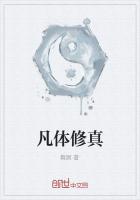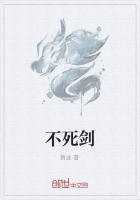*** The dislike or indifference of Marion, to anything like mere military display, was a matter of occasional comment, and some jest, among his followers. Among other proofs which are given of this indifference, we are told, that, on one occasion, attempting to draw his sword from the scabbard, he failed to do so in consequence of the rust, the result of his infrequent employment of the weapon. Certainly, a rich event in the life of a military man.
The fact is, that Marion seldom used his sword except in battle, or on occasions when its employment was inseparable from his duties.
Long swords were then in fashion, but he continued to wear the small cut and thrust of the second regiment. Such a weapon better suited his inferior physique, and necessarily lessened the motives to personal adventure.
--
The British visitor was a young man who had never seen Marion.
The great generals whom he was accustomed to see, were great of limb, portly, and huge of proportion. Such was Cornwallis, and others of the British army.
Such, too, was the case among the Americans. The average weight of these opposing generals, during that war, is stated at more than two hundred pounds.
The successes of Marion must naturally have led our young Englishman to look for something in his physique even above this average, and verging on the gigantic. Vastness seems always the most necessary agent in provoking youthful wonder, and satisfying it. His astonishment, when they did meet, was, in all probability, not of a kind to lessen the partisan in his estimation. That a frame so slight, and seemingly so feeble, coupled with so much gentleness, and so little pretension, should provoke a respect so general, and fears, on one side, so impressive, was well calculated to compel inquiry as to the true sources of this influence.
Such an inquiry was in no way detrimental to a reputation founded, like Marion's, on the successful exercise of peculiar mental endowments.
The young officer, as soon as his business was dispatched, prepared to depart, but Marion gently detained him, as he said, for dinner, which was in preparation. "The mild and dignified simplicity of Marion's manners had already produced their effects, and, to prolong so interesting an interview, the invitation was accepted. The entertainment was served up on pieces of bark, and consisted entirely of roasted potatoes, of which the general ate heartily, requesting his guest to profit by his example, repeating the old adage, that `hunger is the best sauce.'
"But surely, general," said the officer, "this cannot be your ordinary fare.""Indeed, sir, it is," he replied, "and we are fortunate on this occasion, entertaining company, to have more than our usual allowance."*The story goes, that the young Briton was so greatly impressed with the occurrence, that, on his return to Georgetown, he retired from the service, declaring his conviction that men who could with such content endure the privations of such a life, were not to be subdued. His conclusion was strictly logical, and hence, indeed, the importance of such a warfare as that carried on by Marion, in which, if he obtained no great victories, he was yet never to be overcome.
--
* Garden -- Anecdotes -- First Series, p. 22.
--
The next anecdote, if less pleasing in its particulars, is yet better calculated for the development of Marion's character, the equal powers of firmness and forbearance which he possessed, his superiority to common emotions, and the mingled gentleness and dignity with which he executed the most unpleasant duties of his command.
Marion had placed one of his detachments at the plantation of a Mr. George Crofts, on Sampit Creek. This person had proved invariably true to the American cause; had supplied the partisans secretly with the munitions of war, with cattle and provisions.
He was an invalid, however, suffering from a mortal infirmity, which compelled his removal for medical attendance to Georgetown, then in possession of the enemy.* During the absence of the family, Marion placed a sergeant in the dwelling-house, for its protection.
From this place the guard was expelled by two officers of the brigade, and the house stripped of its contents. The facts were first disclosed to Marion by Col. P. Horry, who received them from the wife of Crofts.
This lady pointed to the sword of her husband actually at the side of the principal offender. The indignation of Marion was not apt to expend itself in words. Redress was promised to the complainant and she was dismissed. Marion proceeded with all diligence to the recovery of the property. But his course was governed by prudence as well as decision. The offenders were men of some influence, and had a small faction in the brigade, which had already proved troublesome, and might be dangerous. One of them was a major, the other a captain.
Their names are both before us in the MS. memoir of Horry, whose copious detail on this subject leaves nothing to be supplied.
We forbear giving them, as their personal publication would answer no good purpose. They were in command of a body of men, about sixty in number, known as the Georgia Refugees.
Upon the minds of these men the offenders had already sought to act, in reference to the expected collision with their general.
Marion made his preparations with his ordinary quietness, and then dispatched Horry to the person who was in possession of the sword of Croft;for which he made a formal demand. He refused to give it up, alleging that it was his, and taken in war. "If the general wants it," he added, "let him come for it himself." When this reply was communicated to Marion he instructed Horry to renew the demand. His purpose seems to have been, discovering the temper of the offender, to gain the necessary time.
His officers, meanwhile, were gathering around him. He was making his preparations for a struggle, which might be bloody, which might, indeed, involve not only the safety of his brigade, but his own future usefulness.















